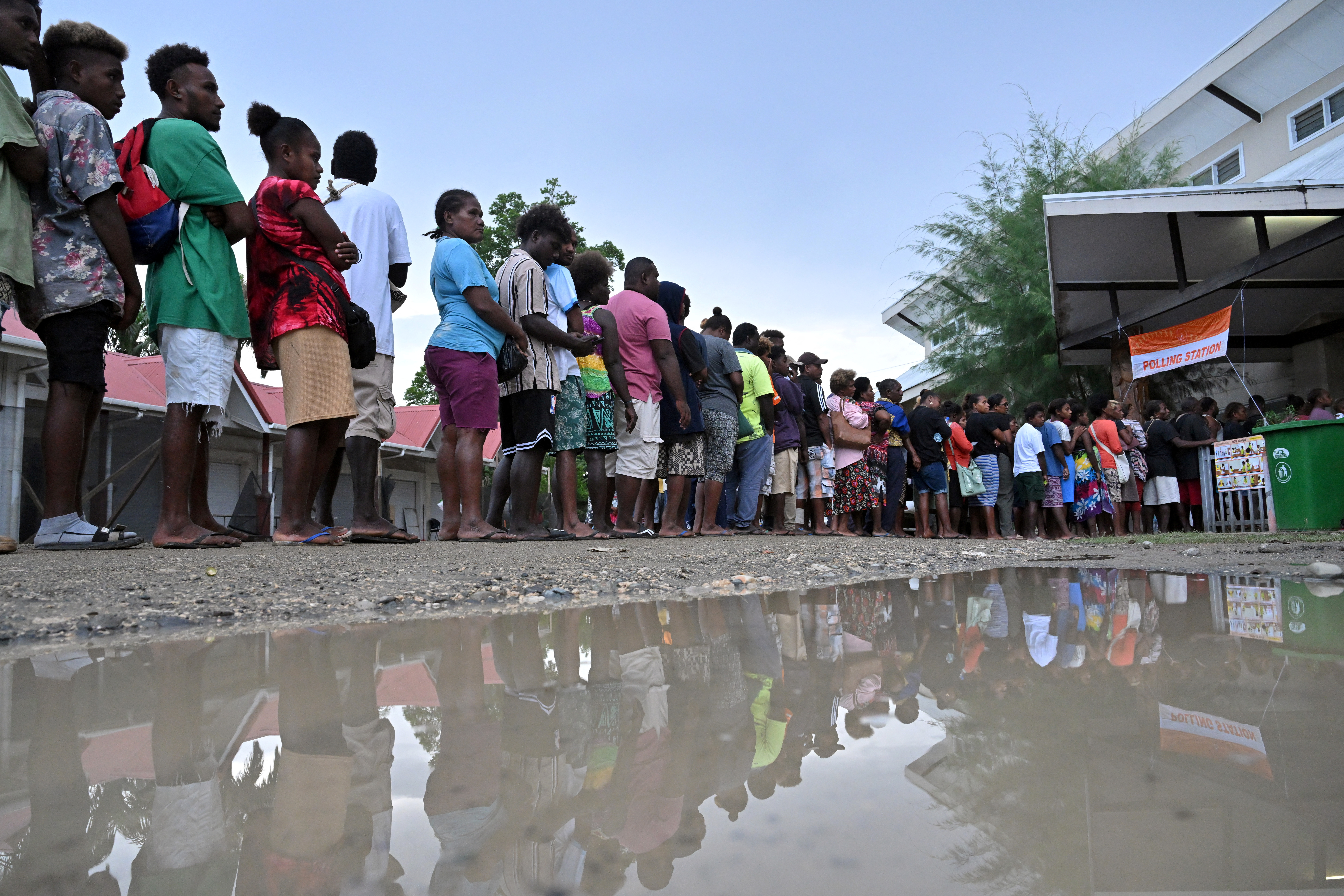The two major opposition parties in the Solomon Islands struck a coalition deal on Saturday as they vie with former Prime Minister Manesseh Sogavare’s party to form a government after an election delivered no clear winner. Last week’s election was the first since Sogavare struck a security pact with China in 2022, inviting Chinese police into the Pacific Islands archipelago and drawing the nation closer to Beijing.
The election process in the Solomon Islands is being watched by China, the U.S. and neighbouring Australia because of the potential impact on regional security. Election results on Wednesday showed Sogavare’s OUR party won 15 of the 50 seats in parliament, two more than the opposition CARE coalition. Independents and micro parties won 15 seats, and courting the independents will be the key to reaching the 26 seats needed to form a government.
On Saturday, the CARE coalition of Matthew Wales’ Solomon Islands Democratic Party, U4C and former Prime Minister Rick Houenipwela’s Democratic Alliance Party struck an agreement with the second-largest opposition party, Peter Kenilorea Jr’s United, to form a coalition with 20 seats. Houenipwela told Reuters the groups had not decided which party leader to nominate as the bloc’s candidate for prime minister.
“Our Group is responding to the cries and wishes of our people to take back Solomon Islands and to bring back confidence in the leadership and the governing of our country,” the coalition said in a statement. Sogavare said last week his party had the support of two micro parties and would woo independents.
Meanwhile, the return of the Peace Corps, a US development and aid agency, appears imminent. The Peace Corps had left the Solomon Islands 24 years ago in the wake of ethnic violence. A report by Al Jazeera says there’s widespread support on the islands for the agency to resume its work. No less than Prime Minister Sogavare has called for its return, seen as his way of telling the world he’s not as pro-China as many may believe.
Thirty eight years in journalism, widely travelled, history buff with a preference for Old Monk Rum. Current interest/focus spans China, Technology and Trade. Recent reads: Steven Colls Directorate S and Alexander Frater's Chasing the Monsoon. Netflix/Prime video junkie. Loves animal videos on Facebook. Reluctant tweeter.





